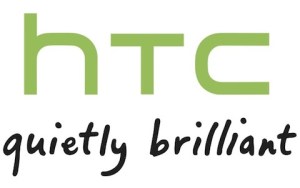Mobile
HTC Watch Video Streaming Service to Debut with HTC Sensation
 Following Samsung’s launch of the Media Hub for its own smartphones and tablets, HTC will be debuting its own video streaming service called HTC Watch that will appear first on the HTC Sensation 4.3-inch Android smartphone featuring a 2D qHD and 1.2 GHz dual-core Snapdragon CPU. However, with fragmented, OEM-created media experiences, the convenience factor of renting, purchasing, and viewing TV shows, movies, and videos while on the go may be overshadowed by conflicting DRM protections.
Following Samsung’s launch of the Media Hub for its own smartphones and tablets, HTC will be debuting its own video streaming service called HTC Watch that will appear first on the HTC Sensation 4.3-inch Android smartphone featuring a 2D qHD and 1.2 GHz dual-core Snapdragon CPU. However, with fragmented, OEM-created media experiences, the convenience factor of renting, purchasing, and viewing TV shows, movies, and videos while on the go may be overshadowed by conflicting DRM protections.
Regarding HTC Watch, in its press release, HTC says:
The HTC Sensation is a smartphone that is built from the ground up for a sophisticated, evolved multimedia experience. The 4.3” widescreen display means that users can watch movies like they were meant to be seen – in their full cinematic glory, with no cropping or letterboxing. The HTC Sensation is also the first smartphone to feature HTC Watch – an application and service that puts an entire library of the latest, premium movies and TV shows right at your fingertips, letting people discover the latest video content in an easy and visually engaging way. HTC Watch uses progressive download technology that makes it possible to watch videos without waiting for a huge file to finish downloading. HTC Watch offers the choice of renting or buying videos, and if purchased, lets you watch them on up to five different HTC devices.
While it’s great that manufacturers like HTC and Samsung are stepping up to fill the gap that Google had created on Android, these efforts may result in locked multimedia libraries that may prevent users from switching brands within the same Android platform. As music purchased from the Media Hub on Samsung’s Galaxy Tab tablets, for example, cannot be listened to on a Motorola smartphone, and HTC-acquired videos may not play on an LG slate, users who commit to the convenience of these mobile multimedia ecosystems may find themselves locked into the company that manufactures their tablets because their content won’t be playable on a rival manufacturer’s hardware.
With movies, videos, and other digital content that are emerging on these third-party digital storefronts, we’re once again regressing into an era of an Apple-dominated iTunes with DRM-encrypted song purchases. Thankfully, while Apple still hasn’t fully opened up iTunes, the company has gone the DRM-free route. Unfortunately, with Android manufacturers, this may not be the case.
It’s already hard enough for iOS users to switch to Android given the amount of post-purchase investments in terms of app purchases through the iOS App Store–users who make the ecosystem switch would have to re-purchase titles as licenses don’t transfer over between platforms–now users have to also consider their multimedia libraries when considering migrating between platforms.

Guest
04/13/2011 at 3:32 pm
This is becoming a real problem… there’s no value add to customers that purchase an Android HTC device to have to subscribe to HTC Watch and view on up to 5 devices. Then at home, I have to subscribe to NetFlix to watch video from my PS3, and a Non-HTC Android, I have to subscribe to Blockbuster to watch video. Fragmentation of aftermarket services is not the answer.